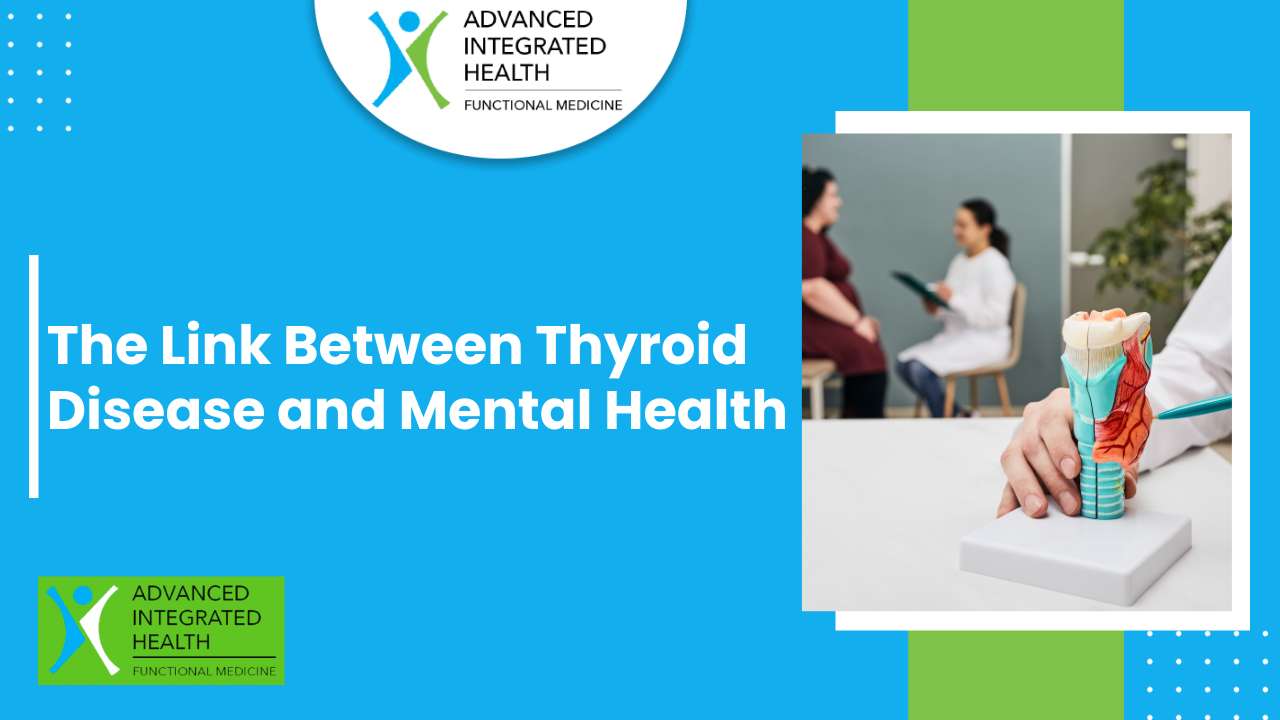The complex interplay between physical health and mental well-being is nowhere more evident than in the relationship between thyroid disease and mental health. This intricate connection, often overlooked, demands a comprehensive understanding, especially considering the profound impact thyroid disorders can have on one’s psychological state. In this exploration, we delve into the nature of thyroid disease, its influence on mental health, and the common symptoms such as depression and anxiety that intertwine the two realms.
Understanding Thyroid Disease
Thyroid disease encompasses a range of disorders affecting the thyroid gland, a butterfly-shaped organ located at the base of the neck. This gland plays a pivotal role in regulating metabolism, growth, and development through the secretion of two primary hormones. These are thyroxine (T4) and triiodothyronine (T3). Disorders of the thyroid can be broadly categorized into two groups: hypothyroidism (where the gland is underactive) and hyperthyroidism (where it’s overactive). These conditions can stem from various causes, including autoimmune diseases, iodine deficiency, genetic factors, and environmental influences.
Impact on Mental Health
The link between thyroid disease and mental health is profound and multifaceted. Thyroid hormones are crucial for brain development and functioning, influencing neurotransmitter activity, brain structure, and mood regulation. An imbalance in these hormones, therefore, can have significant psychological implications.
Depression and Hypothyroidism
Hypothyroidism is often associated with depression. The reduced levels of thyroid hormones can lead to a slowdown in metabolic and neural activities, manifesting as depressive symptoms. Patients may experience persistent sadness, loss of interest in activities, fatigue, and cognitive impairments. The biochemical changes brought about by hypothyroidism can exacerbate these symptoms, making it a vital factor to consider in the diagnosis and treatment of depression.
Anxiety and Hyperthyroidism
Conversely, hyperthyroidism is frequently linked with anxiety disorders. The excess of thyroid hormones can lead to an overstimulation of the nervous system, resulting in symptoms of anxiety. These include feelings of nervousness, irritability, increased heart rate, and panic attacks. The heightened metabolic state can also lead to sleep disturbances, further aggravating anxiety.
Cognitive Function and Thyroid Imbalances
Both hypo- and hyperthyroidism can affect cognitive functions. Memory problems, difficulty in concentration, and a general slowing of cognitive processes are common in hypothyroidism. In hyperthyroidism, patients may experience restlessness, inability to focus, and rapid thought processes.
The Impact on Daily Life
Living with thyroid disease can profoundly affect daily life, influencing work, relationships, and personal well-being. The mental health implications, such as mood swings and cognitive changes, add an additional layer of challenge.
Diagnosis and Management
Diagnosing the mental health implications of thyroid disease requires a holistic approach. It involves assessing both physical symptoms and psychological states. Blood tests measuring levels of thyroid-stimulating hormone (TSH) and thyroid hormones are standard in diagnosing thyroid disorders. However, understanding the psychological impact requires a more nuanced approach, often involving mental health professionals.
Holistic Approaches to Management
Managing thyroid disease and its mental health impacts often requires a holistic approach. Lifestyle changes, such as diet and exercise, coupled with alternative therapies like yoga and meditation, can be beneficial.
Supporting Well-being Beyond Treatment
- Regular exercise: Enhances mood and general health
- Healthy diet: Focus on nutrients supporting thyroid function and mental health
- Stress reduction techniques: Meditation, yoga, or other relaxation practices
Conclusion
The relationship between thyroid disease and mental health is a testament to the intricate connection between our physical and psychological well-being. Recognizing and addressing this link is crucial in providing comprehensive care for individuals with thyroid disorders. It calls for an integrated approach that encompasses both endocrinological and mental health expertise. By acknowledging and treating the psychological implications of thyroid disease, we can significantly improve the quality of life for those affected, highlighting the importance of a holistic view in healthcare.

Dr. Bob was born and raised in Florham Park, New Jersey.
He loved the philosophy of vitalism, which teaches about the incredible, innate intelligence of our bodies and its power to self-heal when given the opportunity.







0 Comments